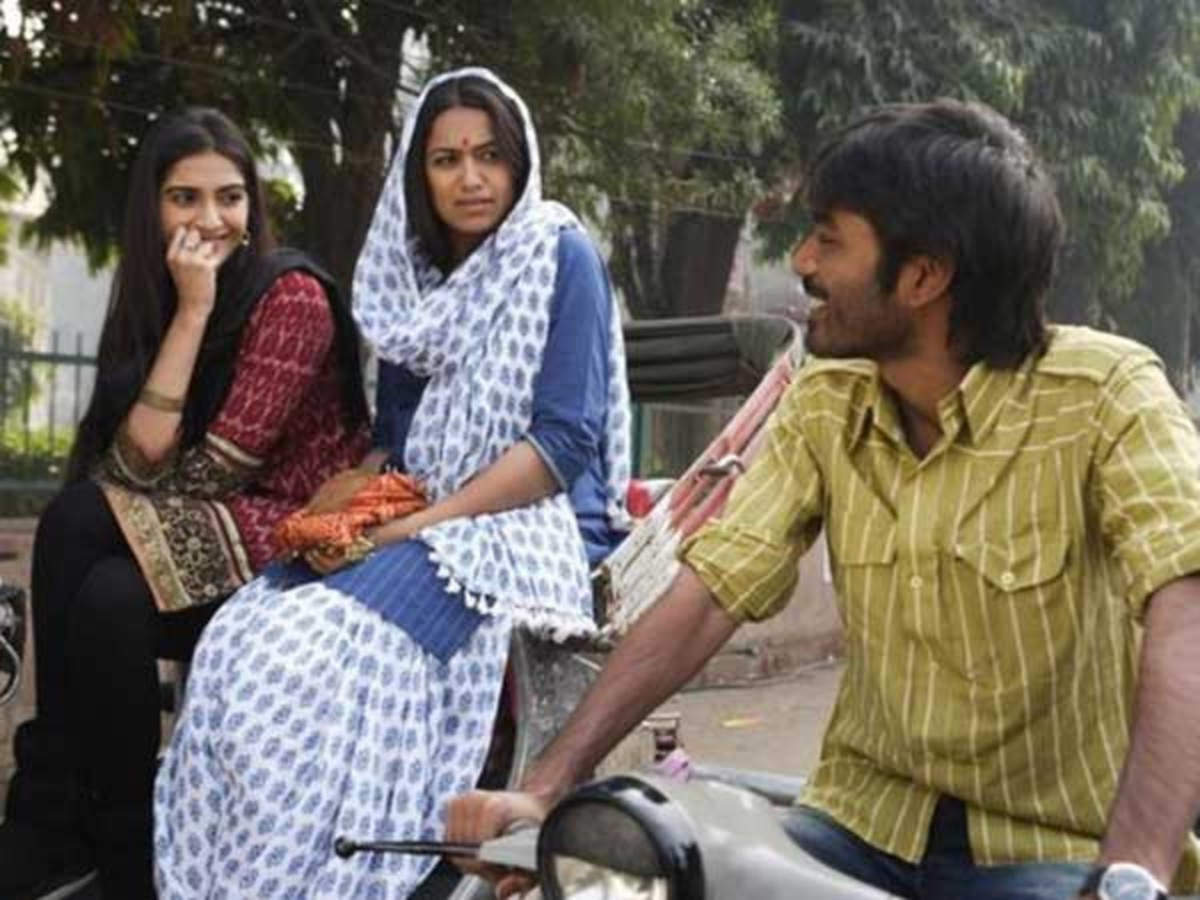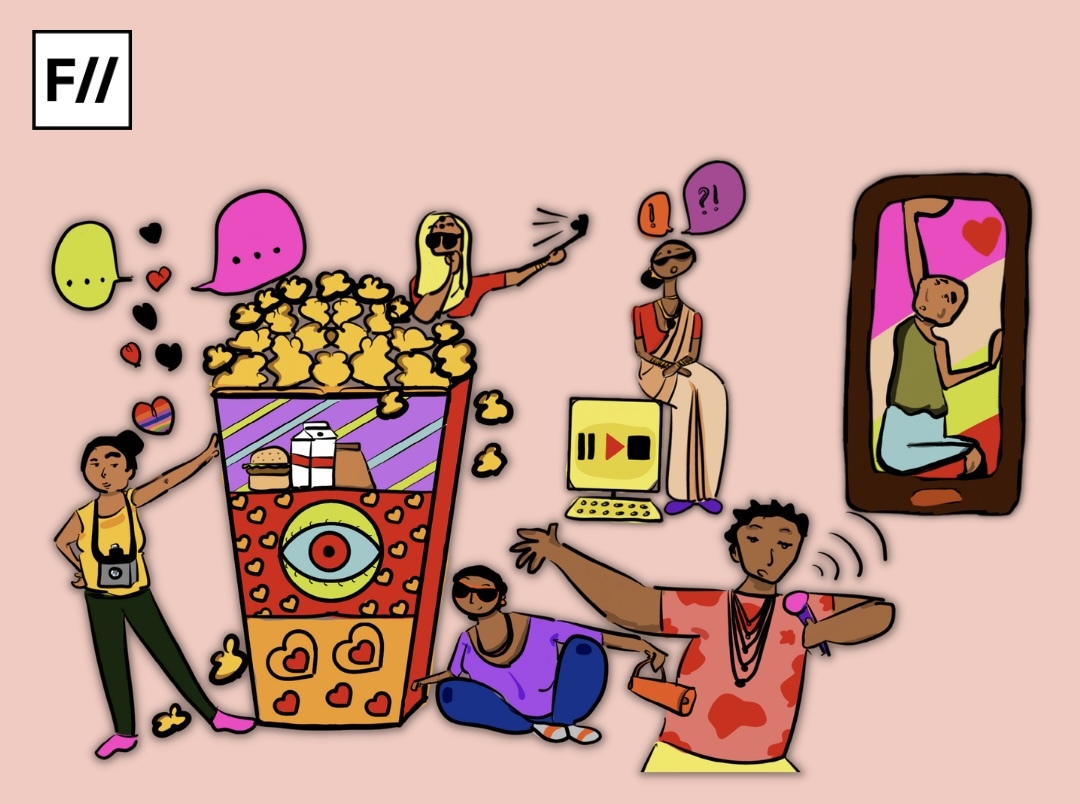Jacques Lacan, the French psychoanalyst and psychiatrist, rightly says in his theory of love, that love means giving something you don’t have, to someone who doesn’t want it. I almost took ages to decode and decipher the meaning of this line but one thing that became clear to me is that Lacan definitely didn’t mean forcing one-sided obsession on someone who is not willing to accept it.
For an example, let us say A is a woman in her 20’s, who often travels via metro to her workplace, and B is a man, also in his 20’s, who takes the same route to his destination and has been noticing A for a few days. A changes her pattern of travelling with respect to time, compartments and metro stations, but B is up for every challenge that could bring him closer to A. So he diligently decodes her changing patterns with keen observation and his profound experience as a stalker and an entitled man.
But soon, both A and B are tired of this claustrophobic routine, so A decides the best possible solution taught to her by the society is to ignore such marauders. A hopelessly stops her passive retaliation. But B can’t wait anymore so he finally approaches A and with dauntless audacity asks A of her personal details like name, workplace whereabouts, and contact information.
Where does B derive so much confidence from? And what would happen if A repudiated his advances right away? Well, a one-sided love story would begin here, if this was a film!

This love story will be about an obsessive, divine lover who toils day and night for the attention of the woman he has fallen for. He wakes up before time because he has to arrive at the metro station. He must be present at the end of the lane that leads to his self-proclaimed beloved’s place, and wait endlessly for the vehicles, people and other inanimate objects or anything that obstructs his sight of the woman he wants to clear up.
The man of this so-called love story knows that he has many distinguishing qualities to be accepted by her. His will be a story that would be told and archived in the pages of patriarchy – of the glorious ways in which he wasted his precious self, waiting at the end of a narrow street for a woman who paid no attention. But what is the psychology of a stalker?
The history of crimes against women in the name of dowry, “wearing jeans” and being followed by a jilted lover has kept itself updated and renewed from time to time. The State often nabs the immediate person who has committed the crime, without delving deep into the socio-cultural factors that fuel it. It ignores the problematic collective morality which needs to be questioned, and does not take stock of the history of this psyche of stalking. Despite innumerable deaths and innumerable prosecutions, the patriarchal, proprietary, hyper masculine morality that sanctions stalking women and harming them is never addressed
Stalking generally sprouts in individuals who lack social chords or are intellectually adept. Broadly, some diagnoses reveal that stalkers have psychotic disorders, narcissistic and personality disorders or erotomania, a delusion where a person thinks that a particular other person wants their attention and loves them secretly.
Based on these delusions, a stalker gets out on his mission to claim the attention back. But Michele Galietta, a clinician and psychology professor at the City University of New York who engages in therapeutic treatments for stalkers says, “There’s no such thing as the typical stalker.”

However, I believe that there is a sense of control which a stalker derives from stalking, like the patriarch who must have the remote control of other lives under his roof. There is a huge amount of conditioning that goes into preparing a man to believe he is entitled to such control.
Men are taught that a ‘true man‘ never bends, never stops, and never fails. His ‘greatness‘ lies in conquering the heart of a woman even if it takes waiting endlessly on the street. He knows that he is too God-like to be denied, rejected and ignored. But if he fails, the ‘relentless lover‘ wouldn’t sit back. He would take revenge, because a woman who has a long history of being looked at as an object of his pleasure, should not be handed over to anybody else if she couldn’t be his.
Stalking is not only limited to tormenting someone physically. Social media has become the new toy-tool of surveillance. The unfollow me campaign brought out stories of several women who suffered at the hands of their stalkers in the absence of action from the State.
The reason behind the problem still being prevalent is that we still see the stalker as an individual and not as the society itself that is aiding this process. Our neighbors know or are in the quest to know about our lives. Everyone is keen to delve into what happens within the life of someone else. A stalker carries the society on his shoulders when he stands at the edge of his terrace and throws a love letter on a random girl from his neighborhood
There are several stories of murder and brutality against women that start off in similar ways like my fictional paragraph about A and B. Recently, a 24 year old dental college student was stalked and murdered by her ex-lover in Kerala. However, this is not an isolated case of homicidal stalking. According to a report in the Times Of India, and as per the data of the National Crime Records Bureau (NCRB), of the 30,450 murders that took place in 2016 in the country, a little over 10 per cent were attributed to love affairs and relationships.
The history of crimes against women in the name of dowry, “wearing jeans” and being followed by a jilted lover has kept itself updated and renewed from time to time. The State often nabs the immediate person who has committed the crime, without delving deep into the socio-cultural factors that fuel it. It ignores the problematic collective morality which needs to be questioned, and does not take stock of the history of this psyche of stalking. Despite innumerable deaths and innumerable prosecutions, the patriarchal, proprietary, hyper masculine morality that sanctions stalking women and harming them is never addressed.
Also read: ‘Smile! UP Police Is Watching’: On Distress, Surveillance And Emotion Mapping

Bollywood and popular culture cannot be left unaccountable when it comes to the normalisation of stalking, and its romanticisation in films. Some of our favorite Bollywood films have often portrayed the idea that love begins with stalking. “Tu haan kar, ya naa kar, tu hai meri Kiran,” a song in Darr is quite disturbing, truth be told.
Raanjhanaa is a recent example for a film that romanticises and trivialises stalking, and presents it as an adorable act of a lover. One out of too many problematic scenes, there is a scene when the character of Dhanush says, “Keh do tumhe pyaar hai, warna abhi kalai kaat denge.” He even slits his wrists to get some attention. Be it the obsessive stalker in Badrinath ki Dulhaniya who continues with his unrelenting approaches despite several rejections, or the character of Ranbir Kapoor in Saawariya who becomes a regular at a brothel just to satiate the stalker within him, these are just a few picks from Bollywood where the idea of a healthy relationship is anchored on the ‘goodness‘ of a man who stalks a woman.
The reason behind the problem still being prevalent is that we still see the stalker as an individual and not as the society itself that is aiding this process. Our neighbors know or are in the quest to know about our lives. Everyone is keen to delve into what happens within the life of someone else. A stalker carries the society on his shoulders when he stands at the edge of his terrace and throws a love letter on a random girl from his neighborhood.
The solution starts with working on the mindset of the society regarding the integration of women who struggle to inhabit the same spaces as their male counterparts. The jilted lovers must understand that “no means no”, no matter what.

The book “The Last Girl” by Nadia Murad, one of the few women who escaped captivity by the ISIS, elucidates that there is an invisible, surveilling gaze that follows when a woman tries to escape. The only difference is in the change of geography, demography, and situation, the general experience of being ‘watched‘ or being ‘followed‘ is the same. Murad painfully writes in the last pages of the autobiographical book that she wants to be the last girl to have been through such horror and pain.
Women are constantly struggling to save themselves from becoming the subject of a voyeur or an object of a neighborhood gaze. The feeling of being watched is generally a part of the lives of most women, because in one way or the other, we as a society have normalised various ways of ‘keeping a tab‘ on women.
While we address stalking as a crime, we must also keep these layers in mind, and address the issue from social, cultural and feminist points of view to effectively find comprehensive solutions.
Also read: Man Reportedly Shoots Medical Student In Kerala: Can Women Say ‘No’ In Relationships?
Maimuna Shafique is a Creative Producer. She enjoys exploring different genres of cinema in order to have an insight into the film appreciation mindset of different demographics across the globe. Maimuna loves taking a stroll down the street in search of ideas brimming within the cacophony of market places. She hopes to write scripts and stories about women who assert their agency without putting the term ‘feminism’ on the face, instead her idea is to make the movement itself a way of life
Featured Image Source: The Quint




